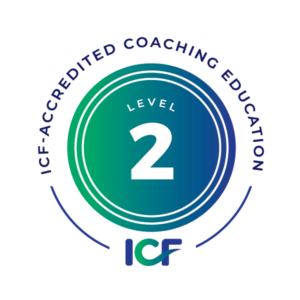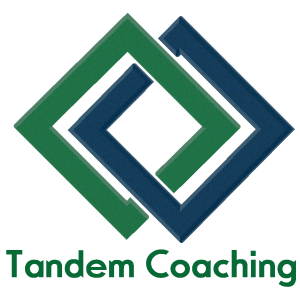Team coaching plays a crucial role in enhancing team dynamics and performance. By exploring the International Coaching Federation team coaching competencies, team coaches can develop and refine their skills to effectively support teams in achieving their goals.
Overview of ICF Team Coaching Competencies
Introduction to ICF Team Core Competencies
ICF’s core competencies serve as the foundation for team coaching. Understanding these competencies is essential for a team coach to navigate the complexities of team dynamics and interactions. Team coaches with a strong grasp of ICF core competencies can facilitate meaningful coaching engagement and foster an empowering team culture.
Key ICF Team Coaching Competencies
For those who choose to become a team coach, mastering the competencies that foster team development is essential. Unlike the individual focus inherent in one-to-one coaching, team coaching competencies necessitate integrating a coaching mindset with specific team coaching tasks tailored to collective needs. This emphasis on team competencies over individual skills reflects the importance of specific team coaching methods in driving group success.
A coaching mindset, paired with team facilitation abilities, is critical for effective team coaching. This approach must differentiate itself from one-to-one coaching, highlighting the distinction by focusing on collective enhancement and the team’s goals.

Ethical Practice
Competencies – team coaching global standards hold that ethics are fundamental in all coaching contexts, with a particular shade of complexity in professional coaching. While ethical practice in individual coaching concerns personal boundaries and confidentiality, team coaching global alliance emphasizes the importance of transparently managing the team’s collective ethics. The ability to respect boundaries between team coaching and other developmental interventions becomes highlighted, accentuating the responsibilities of team coach practitioners in this growing discipline.
- Team coaches view the team as an interconnected entity, prioritizing the team’s needs.
- Role clarity is paramount, respecting the separation between team coaching and team building, team mentoring, and team consulting.
Embodies a Coaching Mindset
Manifesting a coaching mindset within a team is to encourage growth, learning, and shared achievement. Team coach practitioners, much like those providing executive coaching, must transfer individual-focused competencies to a broader canvas, fostering group insights and supporting the team’s ongoing development. This competency is vital for team coaching practice and is often supported by a coaching certification that includes advanced certification in team coaching.
- Engages in a co-creative and reflective process with the team for continued growth.
- Observes the team dynamics without attachment, promoting an environment of learning and discovery.
Establishes and Maintains Agreements
Creating clear agreements about the coaching process is a shared competency among all forms of coaching, but the complexity multiplies in a team context. Here, agreements about the coaching relationship involve the collective, making it imperative for the team coach to ensure a unified understanding across all variables. It reflects the competency of partnering in a co-creative process to serve the team’s overall objectives.
- Clearly delineates team coaching scope and boundaries, ensuring alignment with group objectives.
- Works with the team leader to develop shared agreements that reflect the team’s aspirations and team needs.
Are you eager to magnify the impact of your coaching practice? Our ICF Team Competencies program offers a seamless transition for those who have mastered the core competencies, allowing you to delve deeper into the complexities and rewards of team coaching. Explore this opportunity today.
Cultivates Trust and Safety
Whether in individual or team coaching, cultivating trust and safety is foundational. For the team coach, this extends to fostering an environment conducive to group sharing and exploration, essential for ongoing team development and open communication. A safe coaching environment encourages members to collaboratively help the team succeed and promotes unity, making it a core aspect of team coaching.
- Establishes a coaching environment that facilitates open conversations and mutual respect.
- Encourages a unified identity, expressing individual and collective thoughts and emotions to build trust within the team.
Maintains Presence
Maintaining presence in team coaching involves not only individual attention but also the keen awareness of group dynamics. This ability enables the team coach to manage the overall energy and focus of the team effectively. The utilization of a co-coach can enhance presence and ensure an inclusive and balanced coaching process.
- Fully engages with all team members, navigating the team dynamics attentively.
- May integrate a co-coach within the coaching session to provide a more comprehensive perspective and deeper engagement.
Listens Actively
Active listening is a shared competency across individual and team coaching. For the team coach, it’s about attending to all team members and appreciating how their contributions shape the team’s narrative. This listening extends to understating the dynamics and relationships within the team that influence collective performance and cohesion.
- Hones in on the team’s communication, fostering an environment where every voice is heard and valued.
- Empowers the team to own their communications and understandings, laying the groundwork for support effective team coaching.
Evokes Awareness
Evoking awareness in team coaching, much like individual coaching, is about facilitating self-insight. However, in the team context, it means stimulating collective thinking and reflection. It’s about fostering a reflective process with a team that leads to increased awareness and shared understanding of the team dynamics and operations, an essential aspect underpinned by the competencies to support effective team.
- Encourages critical thinking to deepen the team’s collective insight.
- Uses reflective questioning to advance team development and facilitate dialogue ownership.
Facilitates Client Growth
Facilitating client growth is a key competency in all coaching practices. For a team coach, it means aiding the team in outlining and achieving their shared objectives, supplementing the traditional coaching process with one that supports the collective aspirations and strategies that lead to team success. Here, the coach helps the team in a way that inspires them to collaborate towards sustainable results, drawing parallels to how a mentor promotes professional growth.
- Assists the team in articulating and understanding their collective goals and the steps necessary to achieve them.
- Guides the team in a co-creative process to strategize their path to collective accomplishment and shared success.
Developing Team Competencies
Enhancing Team Dynamics
Enhancing team dynamics is a critical aspect of team coaching. Team coaches play a pivotal role in helping teams understand their dynamics, improve communication, and resolve conflicts effectively. Through facilitation and coaching, team coaches can guide teams in building collaborative relationships and fostering a positive team environment.
Unlock Exclusive Coaching Insights!
Enjoyed our insights on professional coaching? We’re just scratching the surface. Dive deeper into the world of transformative coaching with our exclusive offer. Sign up now to receive our FREE brochure: “Our Twelve Favorite Coaching Questions”—a curated collection of powerful questions designed to unlock potential, foster growth, and inspire action. Plus, you’ll gain access to a treasure trove of valuable coaching resources, tips, and strategies delivered straight to your inbox.
Building Collaborative Relationships
Building collaborative relationships is key to a team’s success. Team coaches need to emphasize the importance of specific team coaching tasks that promote collaboration and trust among team members. By addressing the need for team coaching and supporting the team leader in cultivating a cohesive team culture, team coaches contribute to sustainable team performance and growth.
Coaching Mindset in Team Coaching
When it comes to team coaching, fostering a growth mindset within teams is paramount. Encouraging team members to embrace challenges, persist in the face of setbacks, and see effort as the path to mastery can lead to significant improvements in team dynamics and performance. A growth mindset creates a culture of continuous learning and development within the team, allowing members to push boundaries, explore new ideas, and collaborate effectively towards shared goals.

Implementing Coaching Techniques for Teams
Implementing coaching techniques in team settings involves applying core coaching principles to enhance team performance. Team coaches utilize active listening, powerful questioning, and feedback mechanisms to help teams identify strengths, address weaknesses, and navigate challenges. By creating a safe space for open communication and trust-building, coaching techniques can promote psychological safety within the team, fostering a supportive environment for growth and collaboration.
Importance of PCC in Team Coaching
Holding the Professional Certified Coach (PCC) credential is increasingly important in the realm of team coaching. It represents a significant level of competence and mastery within the coaching profession. PCC denotes that a coach has developed the icf team coaching abilities to their full potential. These masterful coaches bring a wealth of knowledge and advanced certification in team coaching to every engagement, capable of guiding teams to work towards their common purpose and shared goals with an evidence-based approach.
The PCC credential, fostered by the International Coaching Federation (ICF), emphasizes the relationship to facilitation and team training. The ICF’s competencies work in tandem to support effective team coaching, ensuring that every PCC can operate under the umbrella of team development. They employ coaching competencies to support effective collaboration and performance, ensuring that all team members can utilize their abilities and potential in order to reach their aspirations.
A global survey to determine the [importance of specific] capabilities for team coaches has highlighted the need for such developed competencies. As the coaching profession grows, the actc (Associate Certified Team Coach) credential and the greater PCC certification become hallmarks of quality and professionalism within the industry. The PCC credential is recognized by government agencies, corporations, and educational institutions alike, making it a credential that transcends boundaries.
Role of PCC in Enhancing Team Performance
PCCs are equipped with the necessary coaching skills and knowledge to facilitate teams to perform well, moving beyond individual competencies to address the needs of the entire group. By providing tailored coaching interventions, PCCs help individual team members and the team as a collective to build connections and navigate the complexities of group dynamics. It’s about applying ICF competencies in a way that inspires collaborative problem-solving and collective action.
Through ICF’s rigorous team coach training, PCCs learn to use tools and strategies that align with a team’s unique context. They leverage KSAOs (Knowledge, Skills, Abilities, and Other characteristics) to enhance the coaching process, bringing an advanced understanding of how competencies work in tandem within a team environment. Utilizing evidence-based research, they support teams in their ongoing development and their journey to reach shared success.
Are you eager to magnify the impact of your coaching practice? Our ICF Team Competencies program offers a seamless transition for those who have mastered the core competencies, allowing you to delve deeper into the complexities and rewards of team coaching. Explore this opportunity today.
Applying PCC Principles in Team Coaching
When applying PCC principles in team coaching, PCCs integrate core coaching competencies with a nuanced appreciation of team dynamics and the organizational context. PCCs engage in defining team coaching and its nuances, going beyond the basics to incorporate the new competencies necessary for today’s complex team environments.
These principles involve fostering an environment where team members can realize their common purpose and shared goals. With a tone of voice that conveys authority and empathy, PCCs facilitate conversations that help clarify the team’s direction and co-create strategies for success. By upholding the ICF’s ethical standards, PCCs ensure that all coaching engagements are conducted with the highest level of integrity and professionalism.
In doing so, PCCs use their credential to uplift the entire coaching profession, contributing to its recognition as a standard for excellence. The ICF advanced certification in team coaching underscores this commitment to quality and reflects the ongoing evolution of team coaching beyond traditional methods. As a result, teams engaged with a PCC can anticipate a partnership that will drive them towards sustainable results, making the role of the PCC in team coaching central to the ongoing development and success of teams around the globe.










